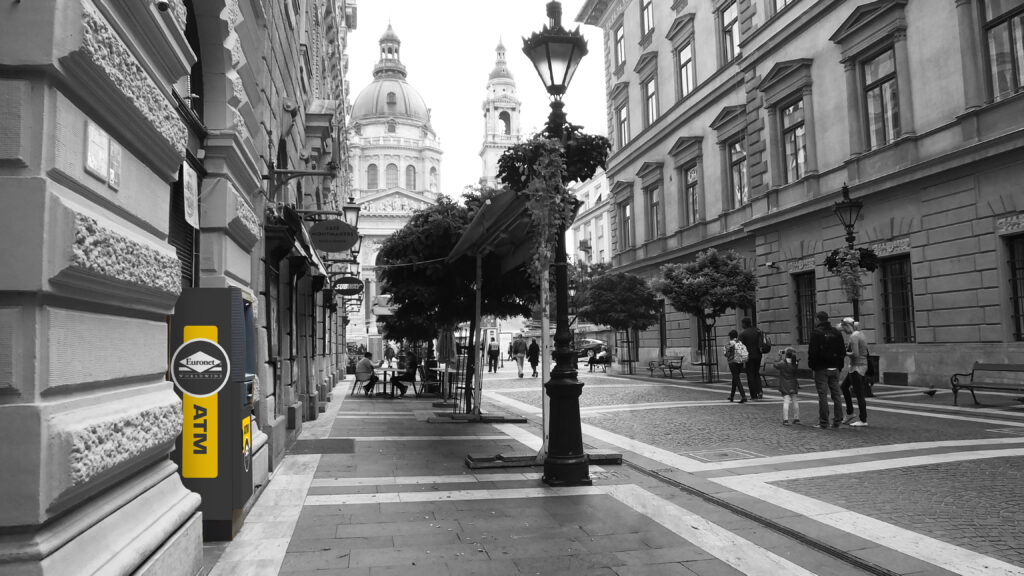Dynamic Currency Conversion (DCC), in Layman’s terms is a service that provides visibility on the amount being paid or withdrawn in the card holders own home currency. For e.g, if you pay for a meal in Spain, you have the option to see the amount in your home currency. Deciding on whether to accept or decline the transaction is a voluntary decision and lies solely with the card holder.
You might ask why and what purpose does DCC give?
It allows card holders to understand just how much they are paying for goods and services in a foreign country. It allows you to manage your budget if you’re on holiday. And for business travellers, it makes life a bit easier when you’re submitting your expenses.
DCC is not a free service though. Any provider that offers it, either at a payment POS machine, an ATM or online, will attach a fee to the conversion. This fee is variable, it’s not fixed and, in most cases, will flex with the current exchange rates.
But why should you pay a fee for this service? The DCC transaction essentially offers a similar service to foreign exchange businesses. Instead of giving you the actual currency in the form of banknotes, it works with a digital transaction. Don’t forget, the costs for buying the currency will be included in the exchange rate you accept at the counter. The difference with the DCC fee is that it’s upfront and visible. This is why Dynamic Currency Conversion (DCC) fees create the most noise online, especially when presented at an ATM.
There’s a couple of things that you may need to consider. DCC will only be present when the software identifies the chip on the card as foreign. For instance, a card issued in the UK, will be offered a Dynamic Currency Conversion (DCC) option if the card is presented in a Spanish restaurant.
There are instances where the chip will be read as foreign, even though the card was applied for in country. This could be due to the proximity of a country border or a centralised distribution centre for the cards. Like, if a financial tech company manufactures and produces all cards in France, but you are applying for a card in Italy.
DCC isn’t a popular fee, but what is the cost of convenience to you?
Have you ever paid a delivery fee for your food shopping? Or even to have new clothes delivered to your house? Do you pay a subscription fee to Amazon or Netflix? Do you pay a little more for petrol at a more convenient garage that’s on the way home from work?
We get a lot of comments about ATM fees, and we understand that people don’t like paying to withdraw their cash. However, you are using a service to achieve this. Our fees are transparent and visible at the point of the transaction. We don’t ask for an annual account fee or a monthly subscription. We don’t have the capability to draw on alternative sources such as mortgage rates, loan APR’s or other means of subsidising the running of the ATM and the service.
Euronet offers fair rates, with a technologically secure means to withdraw cash, conveniently when you need us. We are regulated and work with global card issuers. This in turn means we must follow and adhere to regulations and compliance guidelines. Our fee rates are monitored regularly, and we visibly show the margin per transaction as stipulated by the European Central Bank (ECB). This is not a practice that many ATM providers currently follow. The legislation around fees will no doubt change as our borders open up. As always, Euronet will be quick to comply.
So, to answer the original question – do the fees outweigh the value?
We don’t believe so. There are many people who feel the fees are unfair, but our fees are not hidden, and we are clear on the total fee cost before the transaction is completed. Deciding to accept or decline a DCC transaction is down to the card holder, and they make that final decision.
If you are working to a budget, the DCC transaction will offer clarity on how much the charge is at the point of withdrawal. If you decline the DCC transaction, your bank/card issuer will add the costs for the transaction later. This may be more than you would be charged at the initial transaction.
Before travelling, it’s definitely worth reviewing your card issuers T&C’s as the costs/margins will be listed. By doing this, you will have an idea of what the costs may potentially be. It’s also worth considering that currency values do fluctuate.
Our ATM estate covers a wide number of European countries, in both cities and rural locations. So, when you use a Euronet ATM, in whatever country, the fees will be transparent, and they will meet the industry regulations on processing the transaction. The ATM services we offer will give you peace of mind, especially from a security perspective, when visiting a foreign country.
If you have ever thought to yourself “Why am I being charged a fee?” and you’d be interested to learn more about the matter, why not read one of our recent blogs “Euronet ATM Fees Explained – Euronet” which discusses the different types of fees at the ATM.


